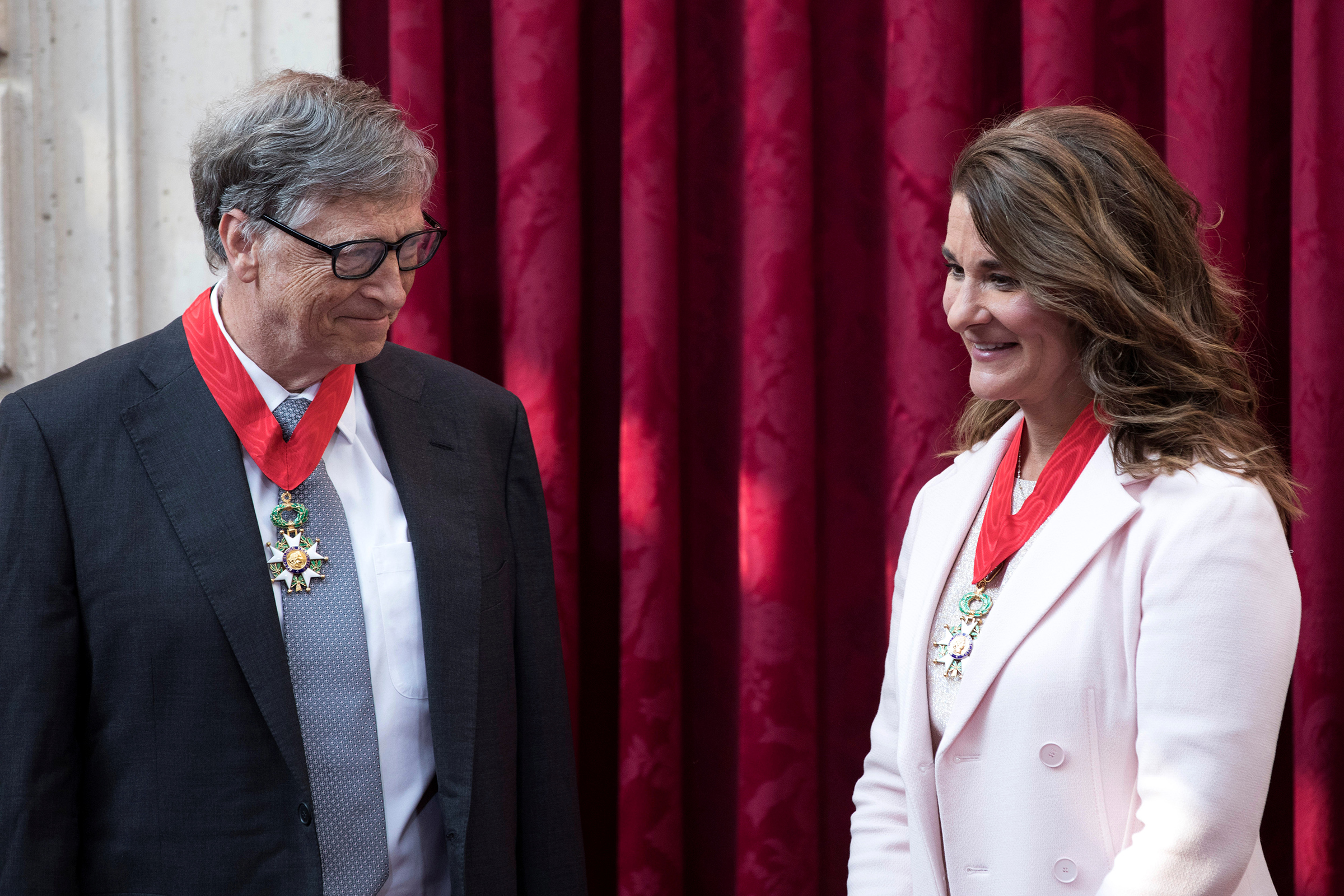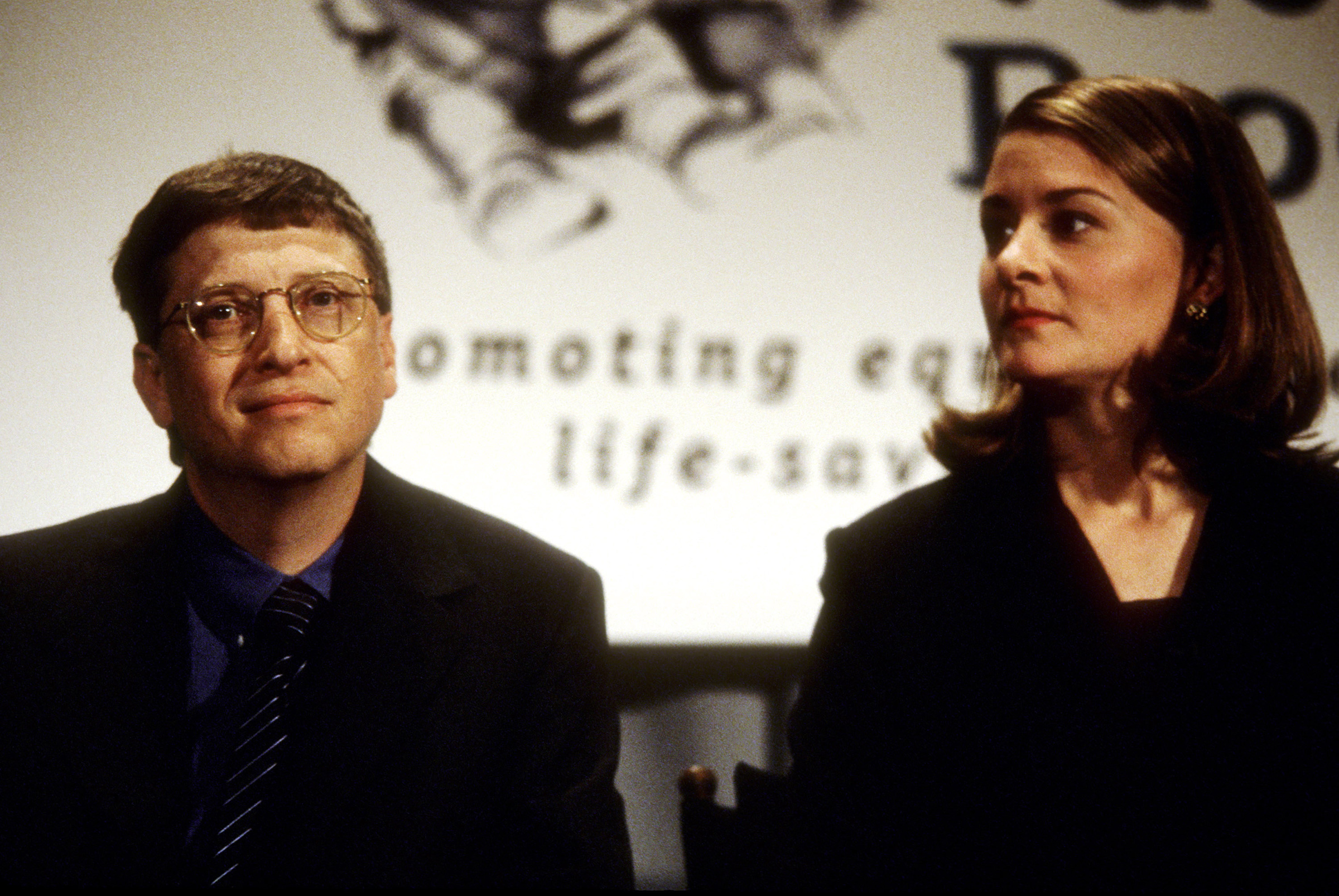
To the wider world, Bill and Melinda Gates have always appeared to be the Mazda of married couples: not very glamorous, but very reliable and unlikely to break down. So when they announced on May 3 that after 27 years they “no longer believe [they] can grow together” and were divorcing, almost everybody was stunned.
The Internet bristled with speculation about what it meant for philanthropy, global health, the future of tech and the stock market. There were less serious responses too— fake Tinder profiles, jokey memes about Microsoft fails, and spoofs of QAnon speculation about whether Melinda was anti-vax. Alongside those, however, there was a quieter, sadder discussion. What happened? If the Gateses, with all that money, a joint project that had made a real impact, three kids and 27 years under their belt, couldn’t make it, what hope is there for the rest of us?
Shocking as the Gateses’ announcement is, it is not extraordinary. In recent years, the rate of divorce has been going down among all types of married couples, with a notable exception: those older than 50. While most people who are going to divorce do so within the first few years of their marriages, this generation of 50+ folks (Melinda is 57, Bill 65) are more likely to divorce than the 50+ folks who came before them, a trend that is notable enough to have earned its own name: gray divorce.
“It really has been more and more common,” says Israel Helfand, who with his wife Cathie runs three-day retreats in Vermont for high-net-worth individuals whose marriages are on the brink of failing and has noticed that many of their clients are at the retirement stage. “I mean, not only are people living longer and healthier at their older ages, they’re also seeing more opportunities. And so people have become a little bit more picky about their level of happiness. They don’t want to compromise.”

While nobody except the Gateses knows what really happened in their marriage, there are themes that therapists see recurring among couples at their life stage. One is simply that people can afford to separate. At that advanced point in many unions, especially if both partners work, each individual may be wealthy enough to see very little opportunity cost in splitting. The Gateses have $130 billion, give or take, to divide between them, and while it appears there was no prenuptial agreement, it’s unlikely that either of them will ever go wanting. “Those with no financial pressures actually have fewer constraints on staying together if they hit a patch of time where they are less happy and where dedication wanes,” says Scott Stanley, a research professor and the co-director of the Center for Marital and Family Studies at the University of Denver. “When people have loads of alternatives, including financially, they are going to find it easier to let go when the distance has grown too large.”
However, as recently as last year, the couple seemed to be close. On their 26th wedding Melinda shared a post on her Instagram account that noted that New Year’s Day was always special to her because it was “an opportunity to celebrate being married” to her husband. “I’m still marveling at just how full a heart can get,” she added. “Happy anniversary to the man who keeps me dancing through life.”
Another factor many therapists encounter is the so-called “empty nest syndrome.” The Gateses’ children range in age from 18 to 25, and the intensive parenting stage of their partnership is over. Their oldest daughter Jennifer, who got engaged in 2020, noted on social media on May 3 that the recent period had “been a challenging stretch of time for our whole family” and that she was trying to offer support to other family members.
Many couples find that when they are no longer raising children together, they have few other projects or interests in common. Others find it’s a moment to take another look at what they really want from life. “It’s a time when they reassess what the relationship holds for each of them as individuals,” says John Gottman, who runs a practice with his wife Julie, and whose 2015 book, The Seven Principles for Making Marriage Work is still one of the bestselling books on staying together. “If part of the relationship is eroded, the romance, the passion, the collective adventure, then a lot of couples take that as a time to end the relationship amicably. And my guess is that in a lot of ways, they’ve probably led very parallel lives. They’re so busy, and they’re both very powerful intellects independently.”
Bill, a noted workaholic, announced in March 2020 his intention to step back from the boards of Microsoft and Berkshire Hathaway, and his hope to spend more time on his work at the global-aid behemoth he and his wife started. The Bill & Melinda Gates Foundation would seem to offer just such a “collective adventure” that Gottman alludes to. But even within the foundation, the two have developed different interests. Bill focuses on climate change and health. Melinda has been increasingly active in issues affecting women and girls. When she turned 50, she told TIME she was no longer going to meetings about science and medicine at the foundation. “I trust Bill has those,“ she said. “I’m taking more meetings about women’s and girls’ issues and the cultural behavior-change pieces of that.” Melinda has also had her own philanthropic foundation, Pivotal Ventures, since 2015.
Indeed, say the Gottmans, their work for the foundation may have contributed to their separation. They may simply not have had the time to give to each other that a workable marriage needs. “They actually have had the courage as well as the resources to tackle the biggest problems we suffer from in humanity,” says Julie Gottman, adding that it must be hard to prioritize your spouse over issues as enormous as global poverty and illness. “How do you pull yourself away from trying to address those never-ending problems in order to just prioritize you and me?” she says. “You know, addressing the leader of India is a little more important than going on a date. That may have pulled them apart.”

One of the main reasons couples of this vintage called it quits, say many therapists, is because one of them had an affair. There’s no hint of this in the Gateses’ news, but the forces that lead to an affair can also lead to a marital dissolution, including the absence of eros in a relationship. “I work with a lot of couples who either sex was never really working or sex just got pushed to the back burner and never kind of came back. We crave touch, we crave intimacy and we crave a romantic gleam in our partners’ eyes where we feel safe and held,” says Ian Kerner, author of So Tell Me About the Last Time You Had Sex. While there’s no evidence of straying, he says he “wouldn’t be surprised if one or both of them had new partners relatively quickly.”
Other marriage experts point to the Gateses’ statement as all the explanation that is needed. Therapist and author of The Rough Patch Daphne de Marneffe says she was struck by how “central to mid-late-life divorce decisions” the phrasing they used was. “When they say they ‘no longer believe we can grow together as a couple,’ the Gateses may well be expressing a lack of hope that harmony, pleasure in togetherness, and emotional intimacy can be restored,” says de Marneffe. She dismisses the possibility of this being a rushed midlife-crisis-style divorce and suggests that it may in fact be a good outcome and may make them happier. “It seems, at least based on their statement, that the Gateses really tried. When people try, and think, and work, and they still can’t make things better, I think there’s value in acceptance.”
Most marriages are more like Maseratis than Mazdas. They can be thrilling, but they need quite a lot of tinkering, and nobody is sure if they’re going to work on any given day. The world’s most powerful philanthropic couple is no more, but the individuals who have emerged might make even more noise.
More Must-Reads from TIME
- Where Trump 2.0 Will Differ From 1.0
- How Elon Musk Became a Kingmaker
- The Power—And Limits—of Peer Support
- The 100 Must-Read Books of 2024
- Column: If Optimism Feels Ridiculous Now, Try Hope
- The Future of Climate Action Is Trade Policy
- FX’s Say Nothing Is the Must-Watch Political Thriller of 2024
- Merle Bombardieri Is Helping People Make the Baby Decision
Contact us at letters@time.com